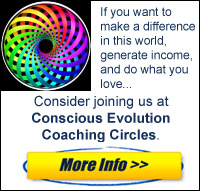Loyalty
2012
Two Perspectives on Loyalty
Dr. Amit Nagpal, New Delhi, India, and
Dr. Janet Smith Warfield, Florida, USA
____________________________________________________________________________
Dr. Amit Nagpal’s Perspective
 The “L” alphabet probably has the most difficult and confusing terms. Love and loyalty are two of them. It is easier to be an opportunist than to be loyal. But loyalty pays you in the long run. It inspires trust, it creates a reputation and it contributes to your personal brand.
The “L” alphabet probably has the most difficult and confusing terms. Love and loyalty are two of them. It is easier to be an opportunist than to be loyal. But loyalty pays you in the long run. It inspires trust, it creates a reputation and it contributes to your personal brand.
Some people even say love and loyalty are the same. So what is the meaning of loyalty? What is the definition of loyalty?
What loyalty means to me
When I say, my friend is loyal to me, it generally means;-
- He considers my enemies as his enemies.
- He will not backbite against me.
- He will protest or argue or defend if someone criticizes me.
- He will be a friend in need.
- He will not publicly complain, even if he has a grudge against me and rather discuss privately.
- He will stand by my side, even if my parents criticize me and will share his opinion with me in private and try to be non-judgmental and yet give me friendly advice or tell me if I am wrong.
Loyalty – another misused word
Should we commit violence and murder in the name of loyalty? Some people cut their fingers in India when their political leaders lose the elections. Is this loyalty? Does being loyal mean emotionally overwhelmed and unstable?
If a man commits murder to loot a person to save his ailing mother, is it loyalty? Many Hindi (Indian) films have similar dilemmas. Were those Indians who were loyal to the British Empire traitors to the nation? I am leaving for the readers to decide. Nothing is right or wrong. Our inner voice knows what is wrong and right in that particular situation.
How do we learn loyalty?
I think we learn loyalty mainly from our parents and their behavior. Of course, perceptions and behavior relating to loyalty among friends, relatives, siblings and teachers also influence us. It is also possible you may be influenced more by your grandparent than your parent and he/she being your role model becomes the role model for loyalty too.
Clash of loyalties
A woman should be more loyal to husband or parents? The question is as difficult to answer as whether an Indian NRI in USA should be more loyal to India or to United States. My personal opinion is to be equally loyal, for the native country, you have emotional loyalty and for the country of residence, you need to have logical loyalty (it is feeding you and in India we say, you have to be loyal to the salt). Over a period of time if the husband is very caring or the country of residence gives you a very caring environment, you will develop emotional loyalty to husband or the country of residence.
True loyalty
The most difficult loyalty is the loyalty to truth or God. It is easier to be loyal to human relationships but difficult to stay loyal to the right, to the truth or to the conscience.
Our inner voice also wants us to be loyal to truth. But it is easier said than done.
______________________________________________________________________________
Dr. Amit Nagpal is a Personal Branding Consultant, passionate Blogger, and Motivational Speaker based in New Delhi, India. He specializes in personal branding with a holistic touch. His philosophy is “Take Charge of your Life and your Brand” He writes a Blog, “The Joys of Teaching”
_____________________________________________________________________________
Dr. Janet Smith Warfield’s Perspective
 Encarta Dictionary defines loyalty as “a feeling of devotion, duty, or attachment to somebody or something.” But who is that “somebody” or “something” to which we feel devotion, duty or attachment? And to what extent should we carry out that devotion, duty and attachment? And what do we do when we experience a conflict of loyalties? These are not easy questions.
Encarta Dictionary defines loyalty as “a feeling of devotion, duty, or attachment to somebody or something.” But who is that “somebody” or “something” to which we feel devotion, duty or attachment? And to what extent should we carry out that devotion, duty and attachment? And what do we do when we experience a conflict of loyalties? These are not easy questions.
As children, we are very attached to our parents, regardless of whether they are loving or abusive. We have little choice, because we depend on them for our food, clothing, and shelter.
As we grow, we begin to make friends. Why do we choose some over others? Isn’t it because we meet each others’ needs and we feel comfortable in each others’ presence? Here there is a reciprocity of loyalty.
As we reach adulthood, we begin to look for a mate. How do we decide who is worthy of our loyalty for a lifetime commitment? If we choose well, we marry someone who is kind, loving, sensitive, strong, compassionate, and communicative – someone with whom we can build a true marriage of values. If we make a mistake, we choose someone who has affairs, doesn’t carry his or her share of responsibilities, and isn’t there for our children.
And how do we handle a conflict of loyalties? Our parents want us to study medicine and become a doctor. Our spouse wants us to study law. Our heart tells us our happiness lies with art.
We don’t always know when we first meet a new person how loyal and trustworthy he or she will be. It is only when we feel betrayed that we realize we chose to place our loyalty with someone who didn’t deserve it. Do we stay with this person for the sake of loyalty, or do we leave a relationship where loyalty is not mutual?
What about loyalty to our country? A young man is drafted to fight for his country and trained to kill other young men. In some countries, his only choice is to kill or be killed. Is this the proper place to put his loyalty? Or should he become a conscientious objector? Becoming a conscientious objector may be a far more courageous choice than being loyal to a dictator.
William E. Gladstone wrote, “… in freedom you lay the firmest foundations both of loyalty and order.
Ralph Waldo Emerson said, “Trust your instinct to the end, though you can render no reason.”
Perhaps our first loyalty should be to ourselves and whatever God or Higher Power or Universal Energy we believe in. Be true to yourself and you will be loyal to those people and causes that have earned your loyalty.
________________________________________________________________________________
Dr. Janet Smith Warfield serves wisdom-seekers who want understanding and clarity so they can live peaceful, powerful, prosperous lives. Through her unique combination of holistic, creative, right-brain transformational experiences and 22 years of rigorous, left-brain law practice, she has learned how to sculpt words in atypical ways to shift her listeners into experiences beyond words, transforming turmoil into inner peace. To learn more, see www.wordsculptures.com, www.wordsculpturespublishing.com, www.janetsmithwarfield.com
_______________________________________________________________________________
![JanetSmithWarfield300[1]](http://janetsmithwarfield.com/wp2/wp-content/uploads/2011/12/JanetSmithWarfield30011-150x150.jpg)







![JanetSmithWarfield300[1]](http://janetsmithwarfield.com/wp2/wp-content/uploads/2011/11/JanetSmithWarfield3001-150x150.jpg)
 Dr. Amit Nagpal’s Perspective
Dr. Amit Nagpal’s Perspective




Comment